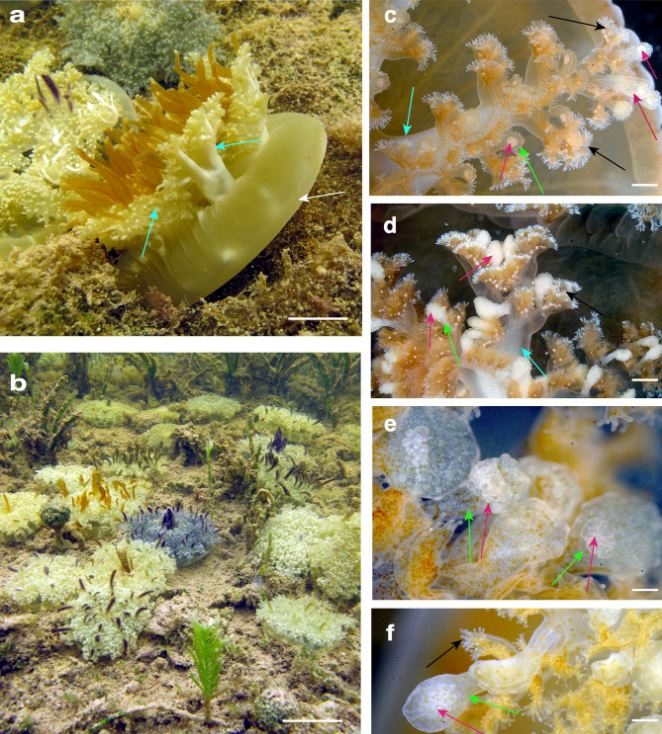There are more than 200,000 species are found in world oceans. Scientists claimed that between 500,000 and two million more multi-celled marine organisms were still unknown. Even though many marine biologists believe that not many exploration events took place in the deep sea, where the chances of finding unknown alien species are maximum, recently scientists discovered a bizarre species of jellyfish.
If anyone swims through the mangrove forest waters, from the coasts of Florida to Micronesia, they may notice this weird jellyfish that stings without having any tentacles.
Venomous Jellyfish
There are nearly 200 known jellyfish species drifting through our planet's seas. Many of these sea creatures are highly venomous with stinging cells that can cause serious consequences for humans—such as extreme pain or even death. These are:
Newly found Jellyfish

According to a study published on Thursday, February 13 in Communications Biology, researchers found a new species of jellyfish that hunts its prey by hurling venom grenades to create "stinging water." Named as Cassiopea xamachana, is a frequent nuisance to snorkelers and surfers who appear to get stung without touching the creatures.
Earlier it was believed that the stings of this jellyfish came from detached tentacles or younger specimens. But recently US Naval Research Laboratory researchers found that Cassiopea had evolved a different way to hunt, without tentacles. The marine creature can lay in its back and lob globules of venom-enriched mucus into the water overhead. These structures are called cassiosomes through which they can kill the prey and sting the fishermen in tropical waters.
The finding of the research
The team of researchers, who conducted this study to find how these marine animals can hunt without tentacles, analysed the species and found their outer layer to be coated with thousands of stinging cells. Even though the venom is not strong enough to kill humans, it does destroy skin cells and is deadly to smaller organisms.
Cheryl Ames, from Japan's Tohoku University Graduate School of Agricultural Science, said that the stinging water causes a sensation which is itchy-to-burning and, depending on the person, can cause enough discomfort. She also said that the new findings could help tourists, divers and even aquarium staff to avoid being of this jellyfish in future.
As reported by AFP, Ames also added that "They have complex and coordinated behaviour with image-forming lens eyes, and some can even kill humans in minutes. Much is to be learned about them and the applications to biotechnology."









